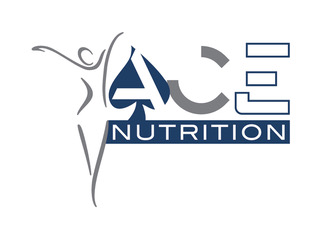You have a weight loss goal. You’ve tried everything to reach it, but nothing seems to be working. So you decide it’s time to go to the extreme.
You sign up for a marathon.
Training will require you to log crazy amounts of miles each week and signing up in advance will hold you accountable to running those miles week after week, month after month. How can you NOT reach your weight loss goal?
I speak to a lot of people who take up the sport of running as a way to lose weight. They sign up for extreme events to hold themselves accountable to their training.
Seems like a good solution, right? Unfortunately for many, it doesn’t result in the weight loss they are expecting.
Everyone knows that you need to cut calories in order to lose weight. But if you want to make it to the starting line healthy and able to complete a marathon (or even a half marathon) while staying vertical, you need fuel. You need to eat to run. You need to eat to recover. You need to eat if you want to remain injury free. Getting your nutrition right is an important component of optimal performance.
This is not to say that you cannot lose weight while training for a marathon, but it’s not as simple as you may expect. As your mileage increases, so will your appetite. This is your body’s way of telling you that it needs more fuel for the increased activity. And if you want to run well, recover well, and feel good, you’d be smart to listen to it.
There is nothing wrong with having a fat loss goal, and there is nothing wrong with wanting to complete a marathon. It’s just very difficult to accomplish both of these things at the same time. Because slashing calories and being on a “diet” while training hard simply doesn’t work well. Your ability to tolerate high training levels will be dramatically reduced.
This doesn’t mean you are doomed to never reach your performance and fat loss goals. It just means you should prioritize your goals and tackle them one at a time.
With my nutrition clients who have both performance and fat loss goals, we use nutritional periodization. This involves varying your nutrition throughout the year to tackle different goals. When training for a marathon or another athletic event, we focus on eating for performance and recovery. When in between races and not training for anything in particular, we shift the nutritional focus to eating in a deficit and tackling fat loss goals.
Running a marathon is an amazing experience, but make sure you do it for the right reasons. Run that marathon because you love running and want to challenge yourself. And throughout the training process, remember to focus on health markers such as increased energy levels, better recovery, increased strength, better sleep, faster running times, etc. These are signs that your body is getting healthier, even if the scale is not moving.
Kellie Largay is a Precision Nutrition L1 & L2 Certified Nutrition Coach. She is also an NCI L1 Certified Coach and Hormone Specialist. Kellie specializes in working with people who come from an under-eating background and are looking to learn how to fuel their bodies for their sport, hobby, daily activities, or to prime their body to lose fat sustainably. She has worked with numerous National and World Class athletes in helping them learn how to eat for optimal performance in their sport, as well as people who are looking to build sustainable healthy habits that’ll allow them to live a happier, healthier life.
Apply here to work with Kellie
https://www.instagram.com/kellielargay/
https://www.facebook.com/groups/ACEnutrition/





